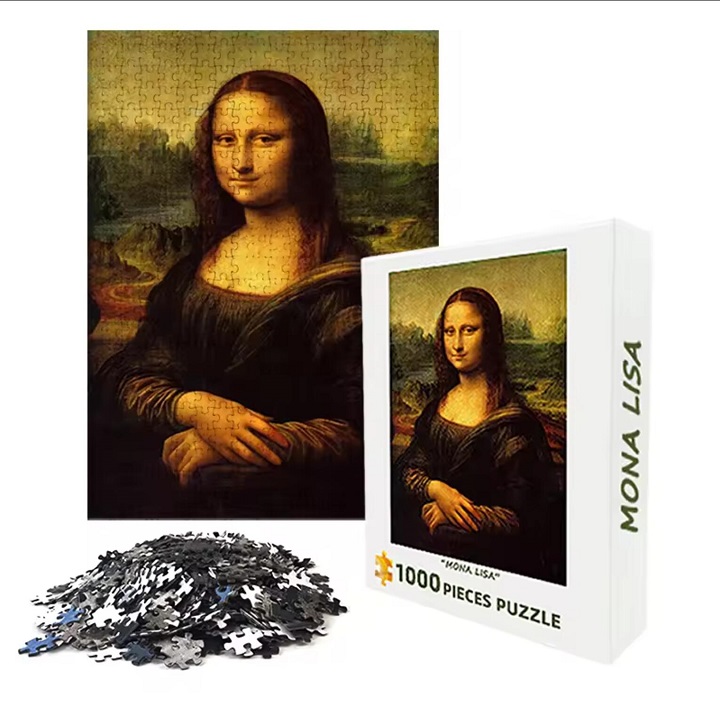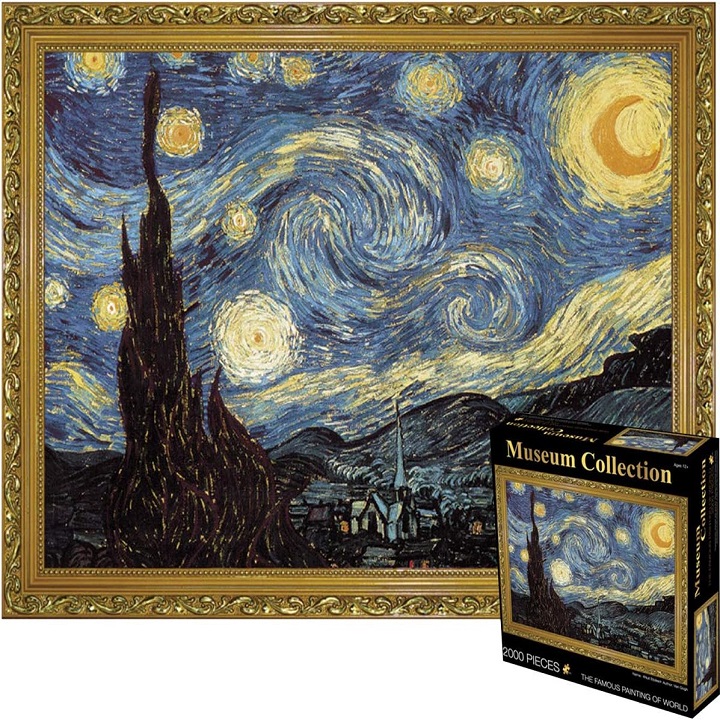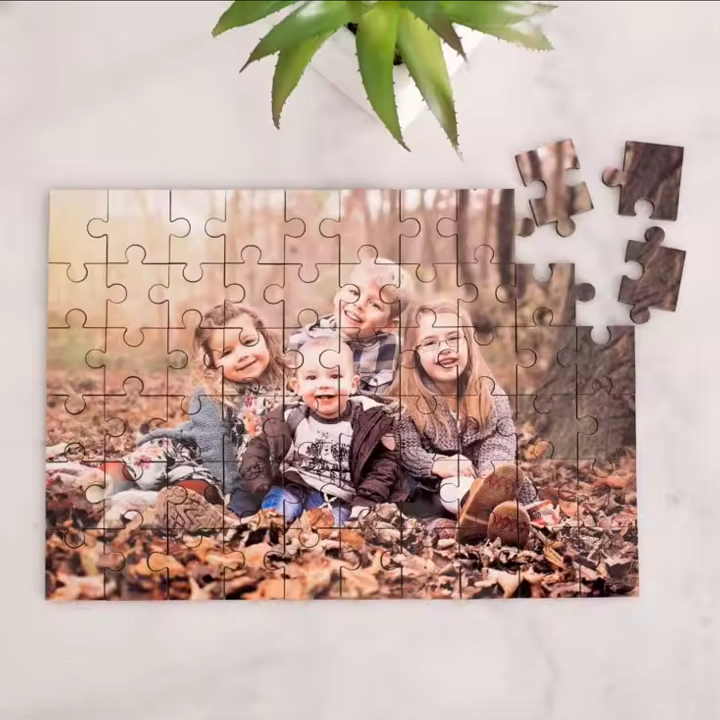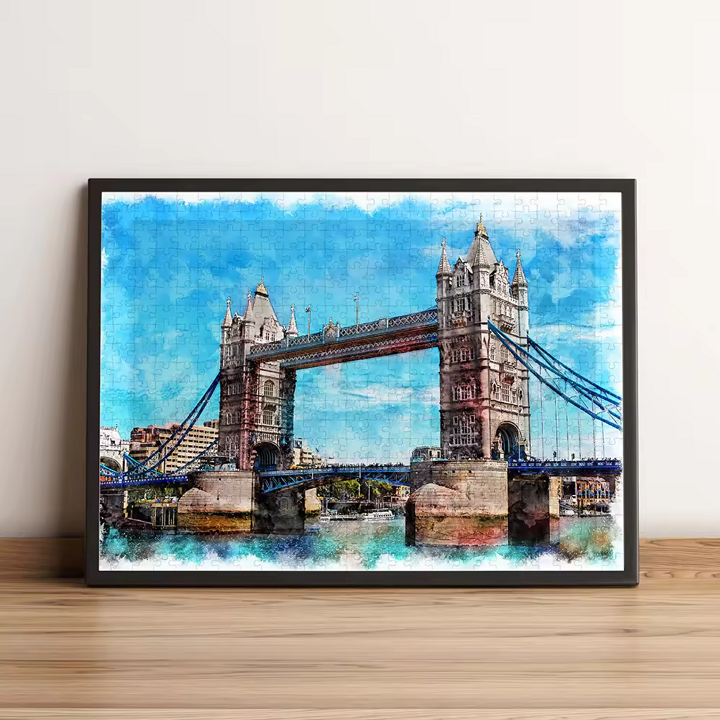Content Menu
● What Makes Jigsaw Puzzles Attractive to Adults?
● A Mindful Escape from Digital Overload
● A Creative and Relaxing Challenge
● What Types of Jigsaw Puzzles Are Available for Adults?
● What Are the Health Benefits of Doing Jigsaw Puzzles for Adults?
● Cognitive Benefits
● Emotional and Psychological Benefits
● How to Get Started and Succeed with Adult Jigsaw Puzzles?
● Tips for Completing Puzzles Effectively
● Choosing the Right Puzzle
● Visual Examples of Popular Adult Jigsaw Puzzles
● Frequently Asked Questions About Jigsaw Puzzles for Adults
● Conclusion
Jigsaw puzzles have long been a beloved pastime for children, but in recent years, they have surged in popularity among adults. Why is this simple activity captivating so many grown-ups? What makes jigsaw puzzles more than just a way to pass the time? This article explores the appeal, types, benefits, and tips for adults who enjoy or want to start doing jigsaw puzzles.

What Makes Jigsaw Puzzles Attractive to Adults?
A Mindful Escape from Digital Overload
In today's fast-paced digital world, adults often find themselves overwhelmed by constant notifications, multitasking, and screen time. Jigsaw puzzles offer a refreshing break by encouraging focus on a single, tactile task. The act of sorting and fitting pieces together demands concentration, helping to improve attention span and short-term memory.
A Creative and Relaxing Challenge
Unlike many other hobbies, jigsaw puzzles blend creativity with problem-solving. Adults can choose from a vast array of themes—from breathtaking landscapes and famous artworks to abstract designs and photography—that stimulate both hemispheres of the brain. This creative engagement induces an "Alpha" brain state, similar to meditation or dreaming, which lowers stress and improves mood.

What Types of Jigsaw Puzzles Are Available for Adults?
Jigsaw puzzles come in many varieties, catering to different preferences and skill levels:
| Puzzle Type | Description | Example Themes/Features |
| Traditional Jigsaw | Classic puzzles with images ranging from nature to art. | Landscapes, famous paintings |
| Gradient Puzzles | No image, just a smooth color spectrum that blends gradually, challenging color recognition. | Cloudberries’ GRADIENT series |
| 3D Jigsaw Puzzles | Construct vertical or horizontal 3D models, often famous buildings or objects. | Eiffel Tower, 3D dinosaur puzzles |
| Wooden Puzzles | Durable wooden pieces, sometimes with unique shapes, often for both kids and adults. | Wooden sea turtle puzzle with animal-shaped pieces |
| Round Puzzles | Circular puzzles with rounded edges, offering a fresh twist on the traditional shape. | Various artistic or photographic designs |
| Floor Puzzles | Large-piece puzzles designed to be assembled on the floor, suitable for big spaces. | Large-scale scenic puzzles |
| Online Puzzles | Digital puzzles that can be done on computers or phones, often customizable with personal photos. | Websites like Im-a-puzzle offer thousands of puzzles |
Photography-themed puzzles are especially popular among adults, offering stunning images of nature, animals, and everyday life that can be both relaxing and visually rewarding.
What Are the Health Benefits of Doing Jigsaw Puzzles for Adults?
Cognitive Benefits
Improved Focus and Concentration: The process of piecing together puzzles demands sustained attention, which can enhance concentration skills in daily life.
Enhanced Memory and Visual-Spatial Reasoning: Working on puzzles strengthens connections between brain cells, boosting short-term memory and spatial awareness.
Potential to Delay Cognitive Decline: Regular puzzling is linked to a decreased risk of Alzheimer’s disease and other forms of dementia, contributing to a longer, healthier lifespan.
Emotional and Psychological Benefits
Stress Reduction: Engaging in puzzles induces a meditative state that calms the mind and lowers stress levels.
Mood Improvement: Completing a puzzle releases dopamine, the brain's reward chemical, providing a sense of accomplishment and happiness.
Self-Care and Mindfulness: Puzzles offer a quiet, screen-free way to relax and recharge, promoting mental well-being.

How to Get Started and Succeed with Adult Jigsaw Puzzles?
Tips for Completing Puzzles Effectively
Start with the Edges: Assemble the border pieces first to create a framework, making it easier to fill in the center.
Work on Small Sections: Focus on distinct areas or colors to build momentum and avoid feeling overwhelmed.
Use the Box Image: Regularly refer to the puzzle picture on the box to guide your progress and maintain focus.
Take Breaks and Switch Sections: If stuck on one area, move to another part and return later with fresh eyes.
Collaborate with Others: Puzzling can be a social activity; working with friends or family can speed up completion and add fun.
Choosing the Right Puzzle
Beginners might start with 100-piece puzzles and gradually increase to 500, 750, or even 1000 pieces as skills improve.
Select themes that interest you, whether it’s nature, art, or abstract designs, to keep motivation high.
Consider puzzle quality: premium puzzles have thicker, durable pieces with precise fits for a better experience.
Visual Examples of Popular Adult Jigsaw Puzzles

Frequently Asked Questions About Jigsaw Puzzles for Adults
Q1: How long does it take to complete a 1000-piece puzzle?
A: On average, it takes about 3-4 hours when working continuously, but time varies with difficulty and experience.
Q2: Are puzzles good for anxiety?
A: Yes, puzzling reduces stress and anxiety by promoting mindfulness and mental engagement.
Q3: What is the best puzzle size for adults?
A: Beginners should start with 100-piece puzzles, then progress to 250, 500, or 1000 pieces for more challenge.
Q4: Can puzzles improve IQ?
A: Doing puzzles enhances memory and reasoning skills, which can contribute to improved IQ scores over time.
Q5: What’s the fastest way to solve a jigsaw puzzle?
A: Starting with edge pieces and working on small, distinct sections is the most effective strategy.
Conclusion
Jigsaw puzzles for adults offer much more than simple entertainment. They are a powerful tool to sharpen the mind, reduce stress, and foster creativity. Whether you prefer traditional puzzles, 3D models, or digital versions, there is a puzzle type to suit every interest and skill level. By incorporating puzzling into your routine, you can enjoy hours of mindful relaxation and cognitive benefits.
































